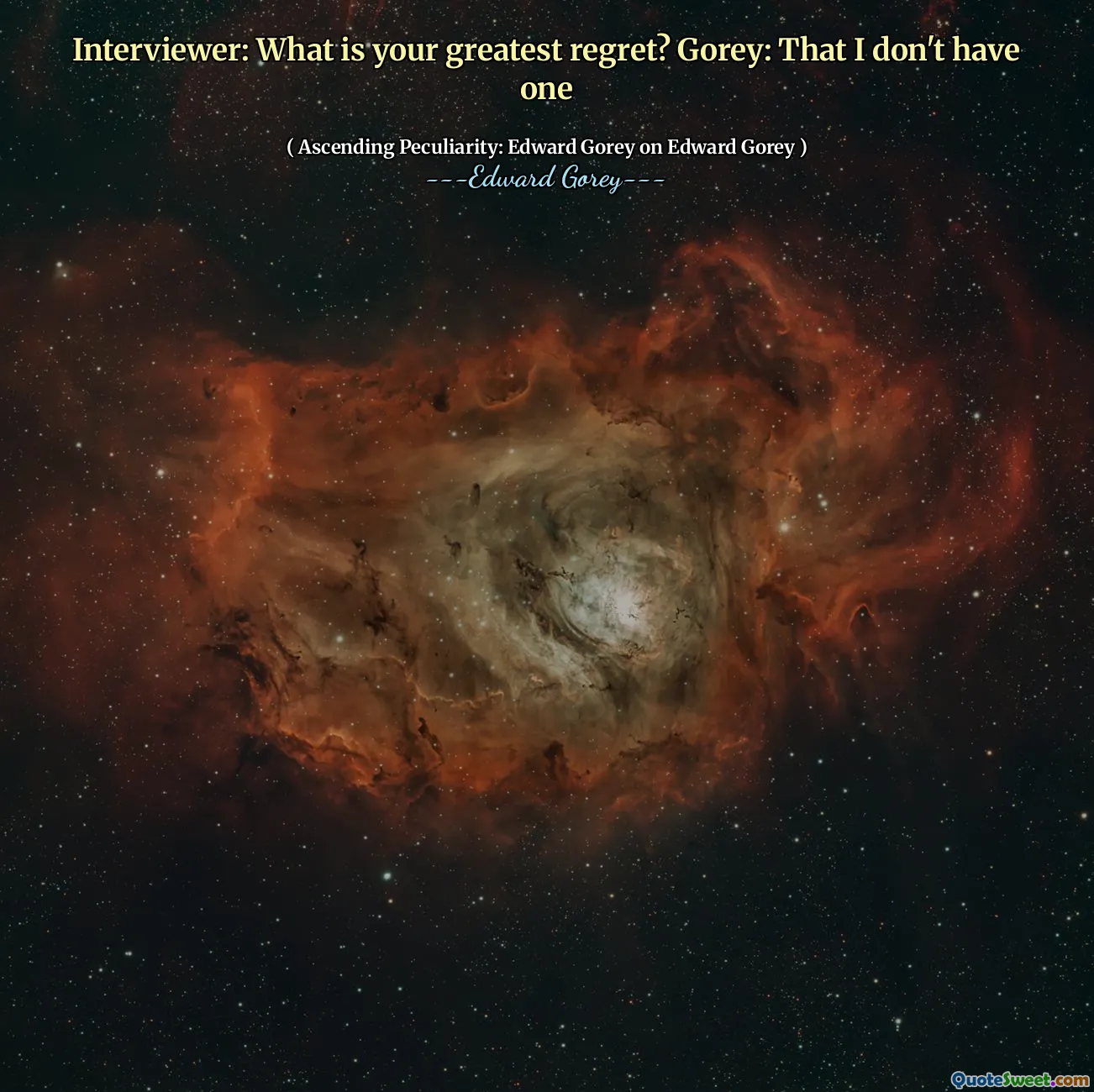
Interviewer: What is your greatest regret? Gorey: That I don't have one
This quote reveals a clever and paradoxical perspective on regret and the human tendency to dwell on past mistakes. Typically, moments of regret are associated with feelings of remorse or disappointment over choices made or opportunities missed. However, Gorey's response flips this expectation, suggesting that not having regrets is, perhaps, a form of freedom or fulfillment. It invites reflection on what it means to live a life without remorse—whether that is truly possible or merely an aspirational ideal. The notion that someone can view their life without regret may speak to a deep contentment or a philosophical acceptance of life's imperfections. It challenges the common narrative that regrets are integral to growth, implying instead that a life free of remorse may be more admirable than one burdened by it. This perspective could prompt individuals to evaluate whether their regrets serve as lessons or whether they hinder present happiness. Moreover, Gorey's witty, contemplative stance exemplifies a unique outlook on life, emphasizing appreciation for the present over dwelling on past faults. It can also be seen as a form of existential affirmation, valuing the here and now rather than past decisions, whether good or bad. Overall, this quote underscores the importance of perspective, acceptance, and perhaps, the pursuit of a life where regrets do not define us but instead inspire resilience or gratitude.







